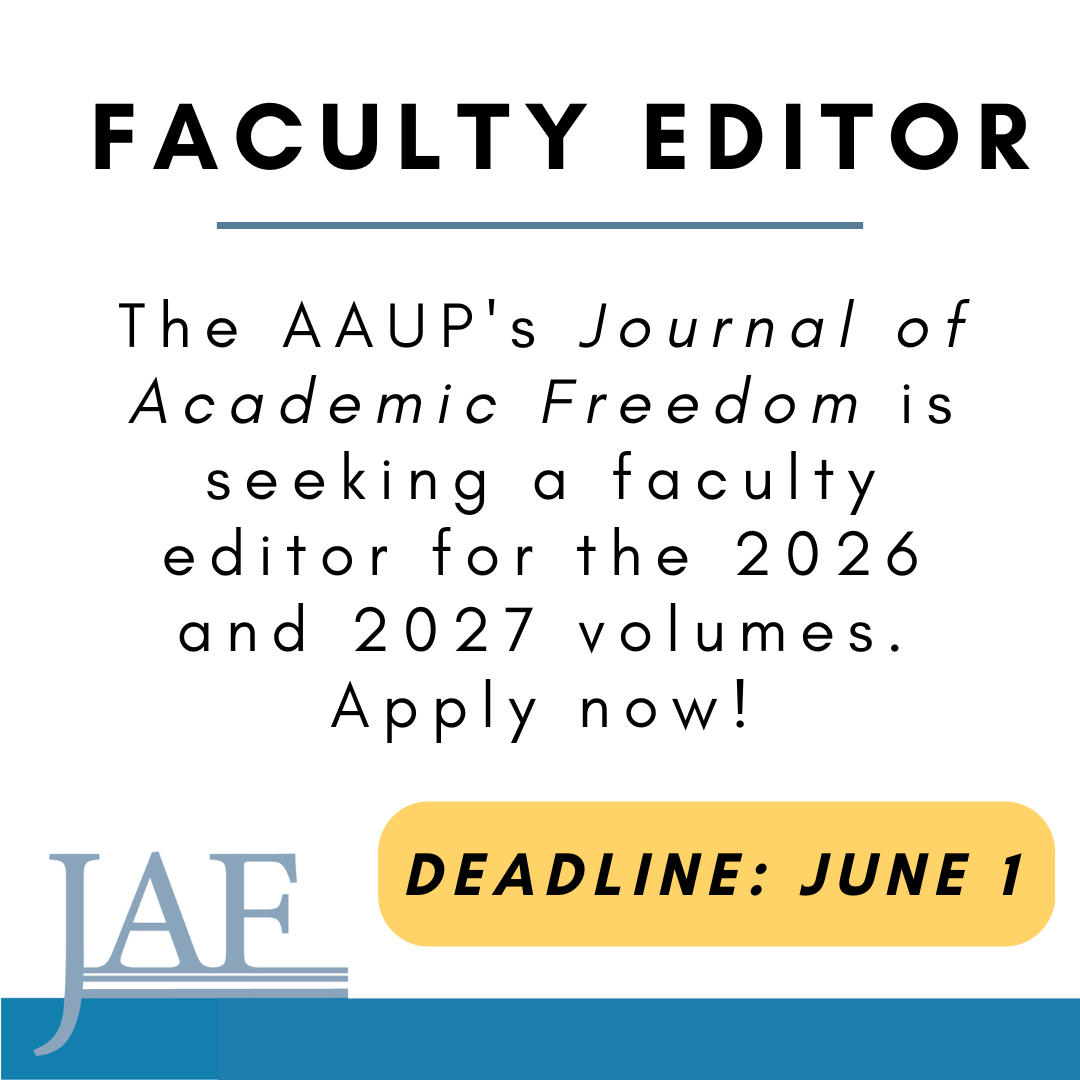- About
- Programs
- Issues
- Academic Freedom
- Political Attacks on Higher Education
- Resources on Collective Bargaining
- Shared Governance
- Campus Protests
- Faculty Compensation
- Racial Justice
- Diversity in Higher Ed
- Financial Crisis
- Privatization and OPMs
- Contingent Faculty Positions
- Tenure
- Workplace Issues
- Gender and Sexuality in Higher Ed
- Targeted Harassment
- Intellectual Property & Copyright
- Civility
- The Family and Medical Leave Act
- Pregnancy in the Academy
- Publications
- Data
- News
- Membership
- Chapters
Appeals Court Expands Protections for Academic Speech
The Ninth Circuit Court of Appeals recently issued an important decision that vigorously affirms First Amendment protections for academic speech by faculty members. Demers v. Austin arose when Washington State University disciplined professor David Demers after he distributed a pamphlet that made proposals to change the direction and focus of the Murrow School of Communications. Demers sued the university, alleging that the university’s actions violated his First Amendment rights. The trial court applied the Supreme Court’s analysis in the 2006 Garcetti v. Ceballos case, under which speech made pursuant to a public employee’s official duties is not protected by the First Amendment. The trial court ruled in favor of the university, finding that in preparing and distributing the pamphlet Demers was acting pursuant to his official duties and that accordingly, under the Garcetti analysis, his speech was not protected.
When Demers appealed to the Ninth Circuit Court of Appeals, the AAUP joined with the Thomas Jefferson Center for the Protection of Free Expression to file an amicus brief supporting him. The brief argued that academic speech was governed not by the Garcetti analysis but instead by the balance test established in the 1968 case Pickering v. Board of Education. In this test, courts first determine whether a professor is speaking on a matter of public concern and then whether the professor’s speech outweighs the state’s interest in an efficient academic workplace. The circuit court agreed with the brief’s argument.
In its ruling, the circuit court emphasized that “the Supreme Court has repeatedly stressed the importance of protecting academic freedom under the First Amendment,” quoting a 2003 ruling in which the Supreme Court explained, “We have long recognized that, given the important purpose of public education and the expansive freedoms of speech and thought associated with the university environment, universities occupy a special niche in our constitutional tradition.” The circuit court also noted that in Garcetti the Supreme Court, concerned with the possible threat to academic freedom, reserved the question of whether the Garcetti analysis applied to “speech related to scholarship or teaching.”
The circuit court concluded that the Garcetti analysis did not apply to teaching and academic writing, even when undertaken “pursuant to the official duties” of a professor. Instead, as the AAUP and the Thomas Jefferson Center argued in the amicus brief, the court held that academic employee speech was protected under the Pickering balancing test. Applying this test, the court found that the speech was protected because it addressed a matter of public concern but that there were additional factual questions that required resolution. Therefore, the circuit court reversed the decision in favor of the university and remanded the case for further proceedings.
Nationally, while the potential protection for academic speech has been broadly recognized, courts have differed as to how far this protection extends. The Demers decision marks an important step forward in the recognition that academic speech deserves broad protection under the First Amendment.




